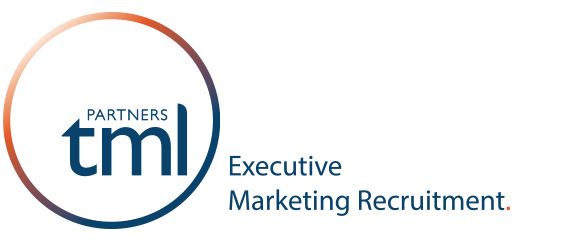One of the undeniable trends for 2019 which tml Partners has seen is a rise in clients wanting to invest in marketing operations.
Historically, there is a bit of mystery surrounding this area – what exactly does a marketing operations role look like? Often, this position is born out of the evolution of a marketing technology role, or it’s come about from the joining together of various tasks that didn’t necessarily have a home, in some cases, it’s an entirely new remit altogether. What clients have found is that, however role came about, it’s quickly become an essential part of the delivery of marketing strategy. In this article we look at the background of the role and how, for those that get it right, it can add real value to a marketing team.
Where has marketing operations evolved from?
Marketing operations has evolved in a variety of ways, all of which we see as demonstrating the rising stock of marketing within organisations.
In many larger organisations, the most senior marketing role is now a board level position. Marketing teams have P&L responsibility and the strategy feeds directly into the business’ bottom line. Traditional marketing skillsets do not necessarily marry up to this more commercial position of marketing, so in some instances, marketing operations roles are created to inject some technical and analytical acumen.
What is a modern marketing operators role?
Other marketing operations professionals have a project-based role. They would be responsible for the execution and smooth running of various initiatives, either on a temporary or permanent basis. These roles are either specifically recruited for, or are the extension of an existing role, but again the value to the business quickly makes this a necessary position.
Projects such as CRM implementation, brand projects and automation are hugely complex and require more dedicated resource than extending an existing team member’s role. Here marketing operations would coordinate all external providers involved in the project as well as the required resource within the marketing team to deliver projects on time and on budget.
The other way in which a marketing operations role has evolved is to help bring together multi-disciplinary and potentially disparate teams. As the remit of marketing expands, naturally so too does the size of the team and the scope of the service delivered. A marketing operations professional in this instance would bring together the spokes of the team to make sure that they are delivering an integrated and efficient service for the business.
This role is about people management, resourcing and strategy. For large, multi-disciplinary teams without this oversight it is common for division to occur and for each individual area of marketing to see themselves as their own team. This clearly doesn’t lead to the best results for the business.
With a marketing operations professional, teams can be truly integrated and effectively communicated, leading to excellent results. This is becoming increasingly prevalent in organisations with a multi-faceted go to market interface spanning service lines, sectors and geographies.
Can marketing operations be strategic?
In reality, the most successful roles in terms of the longevity in the role and the perceived benefit of the service delivered, are a combination of all of these different areas: commerciality, project management and people management. When clients have asked us to devise a job specification and skillset for their marketing operations role, we tend to frame the key areas of responsibility around three pillars: people, processes and technology. This leads to a truly strategic marketing operations role.
In terms of people, marketing operations needs to manage all functions within marketing and bring internal teams together successfully with any outsourced resource. They need to set and maintain budgets, optimise resources and ultimately ensure that the team is delivering excellence. Managing people also includes learning and development strategies and appraisals.
Processes relate to how marketing activities are delivered and linking this to return on investment, budgets and spend. Process management can also extend to campaign management and recruitment. Large teams need processes in place across all marketing activities to ensure consistency of service and predictability of outcomes.
Technology affects marketing at every level, a marketing operations professional needs to be up to the minute on technological advances and be able to successfully implement technology-related projects. This doesn’t necessarily mean having intricate knowledge of the technology available, but being aware enough to be able to meaningfully manage a team of professionals to implement, for example, automation or CRM projects.
What is the future of marketing operations?
From our CMO roundtable series, we have seen that there is an increased desire amongst our clients to have greater efficiency, transparency and above all accountability from marketing functions. It’s becoming clear that marketing operations is in the driving seat for this change. It is an evolving role, and we are learning every day from successful placements what contributes to making this role work. What is clear is that marketing operations is here to stay, and indeed has become an integral component of many successful marketing ecosystems.
David Price leads tml Partners’ professional services practice and has a track record supporting senior leadership and board level marketing specialists with their career development and moves. He and the team are partnering with a diverse range of UK and internationally based clients, ranging from specialist boutiques through to the pre-eminent global brands across legal, accountancy, commercial real estate and management consultancy. tml Partners specialise in permanent and interim appointments across marketing, business development and corporate communications, in addition to supporting clients with market benchmarking and talent mapping consultancy projects on a global stage. Get in touch to find out more.




